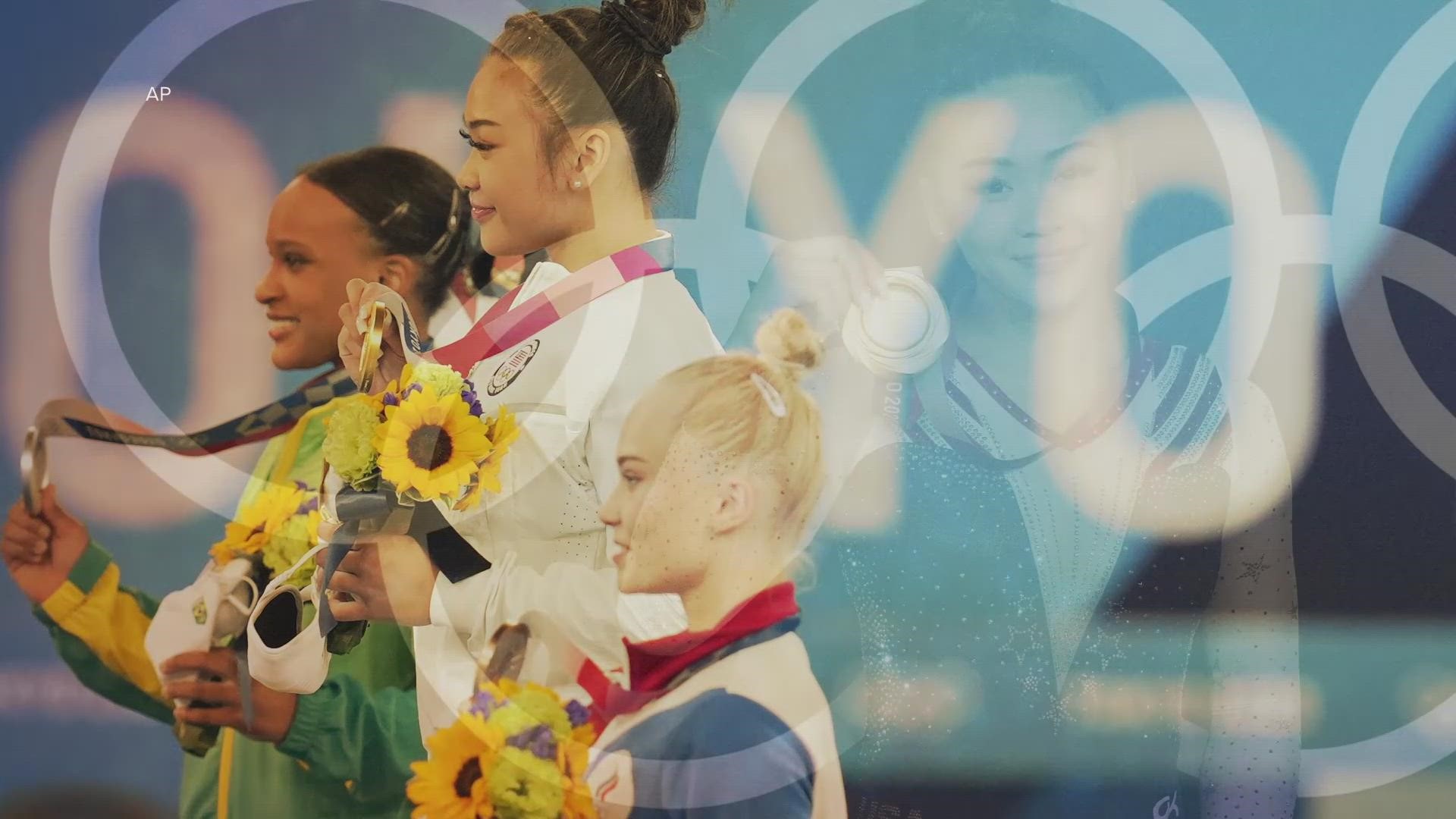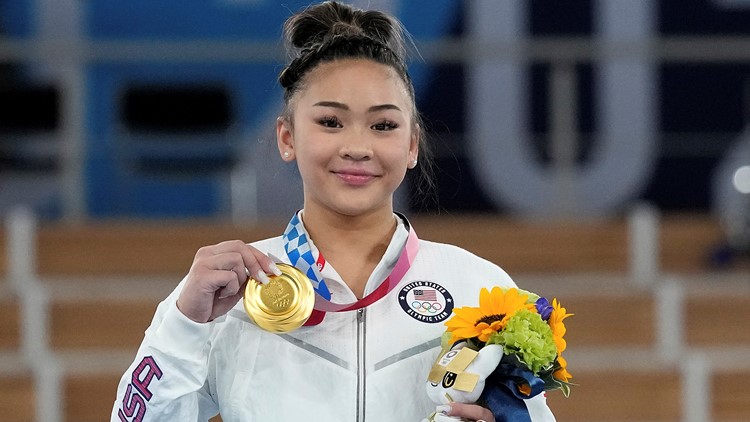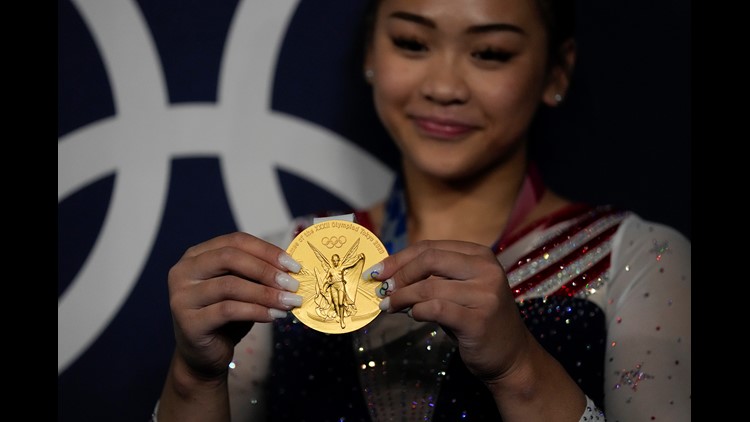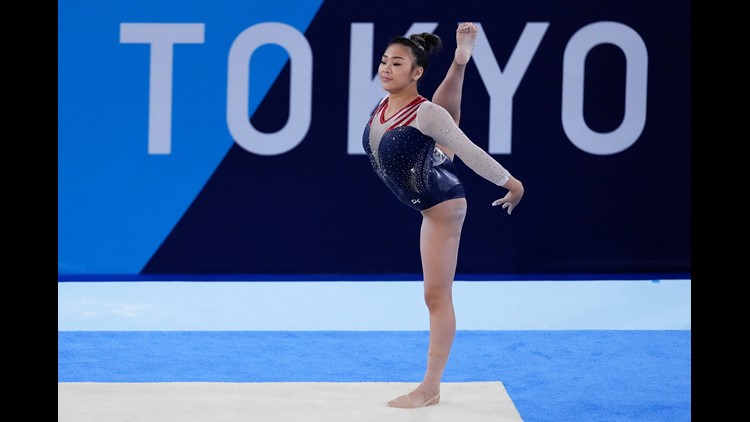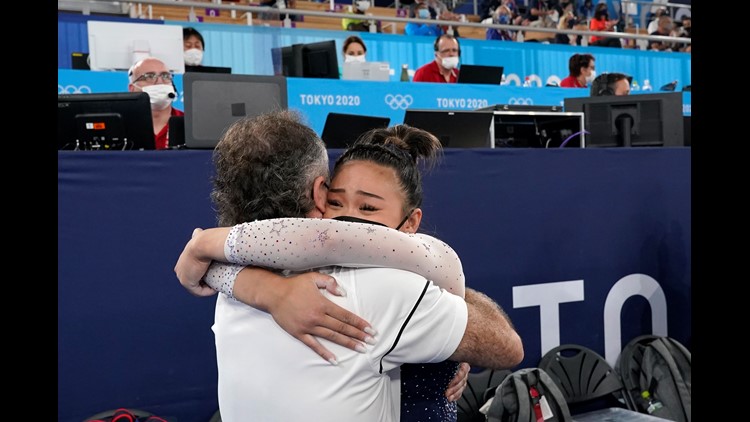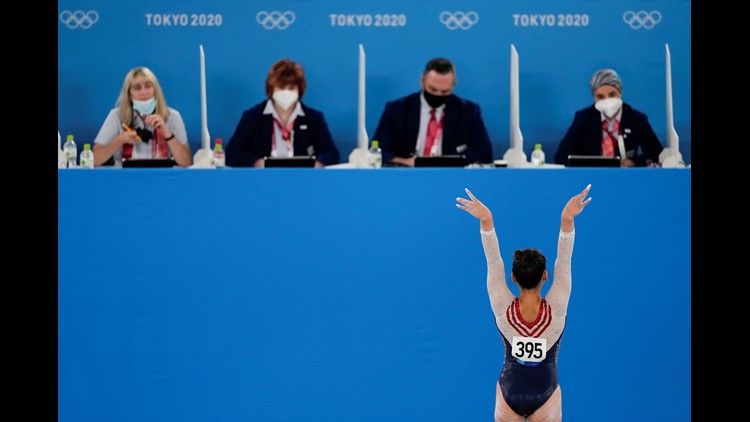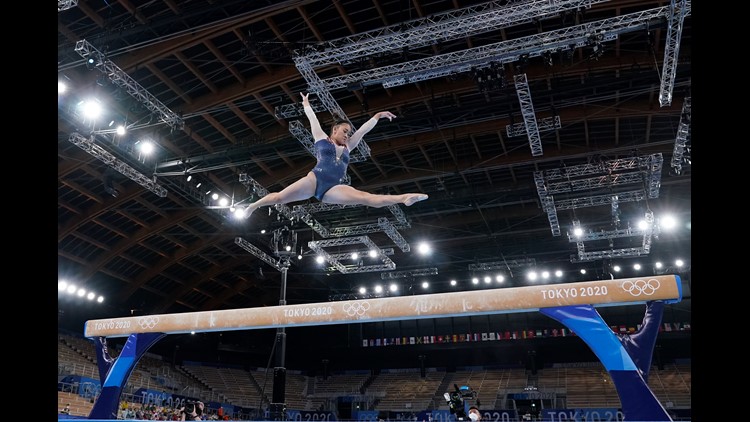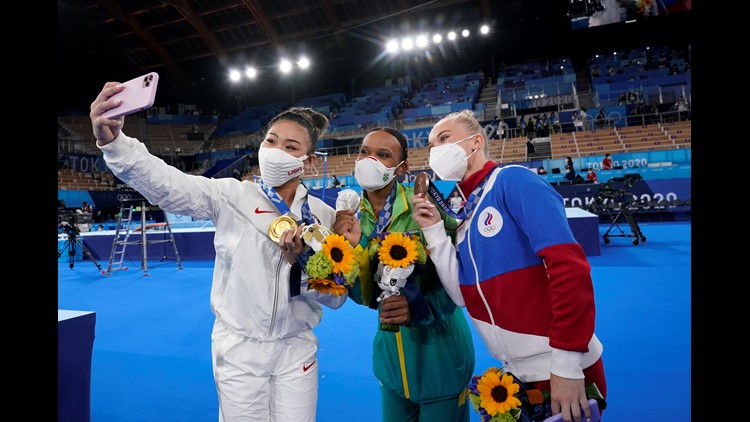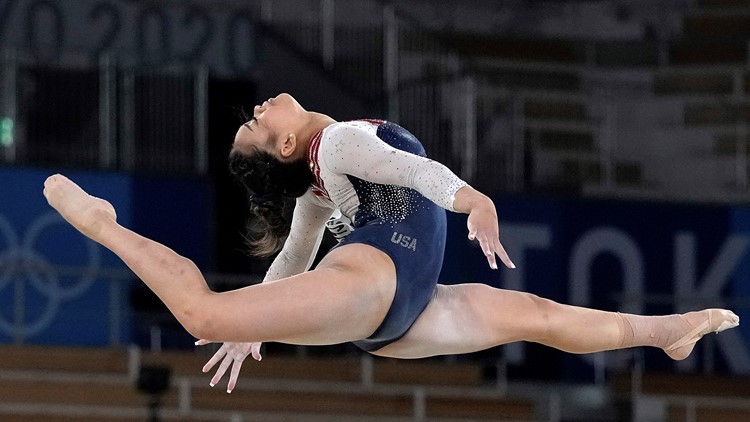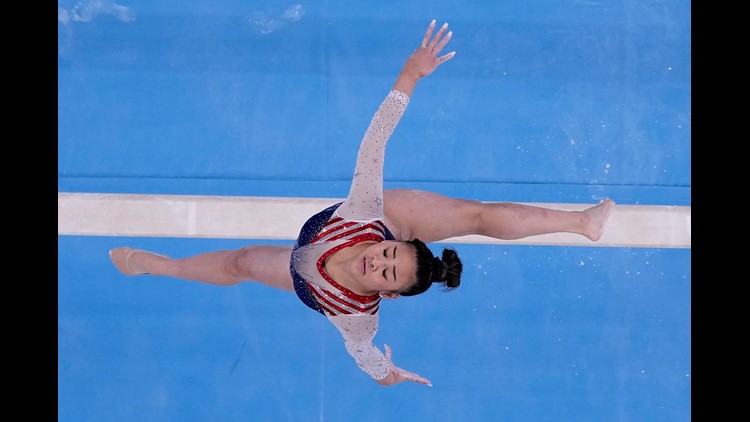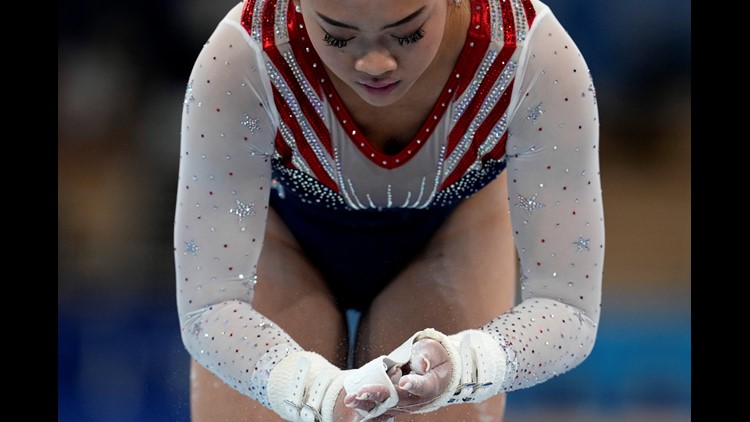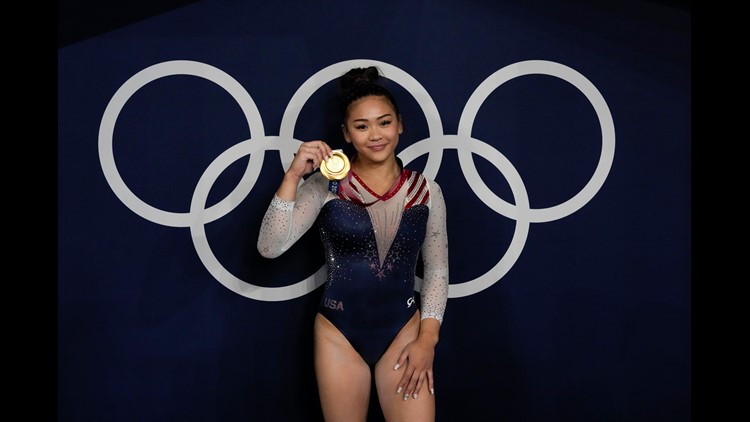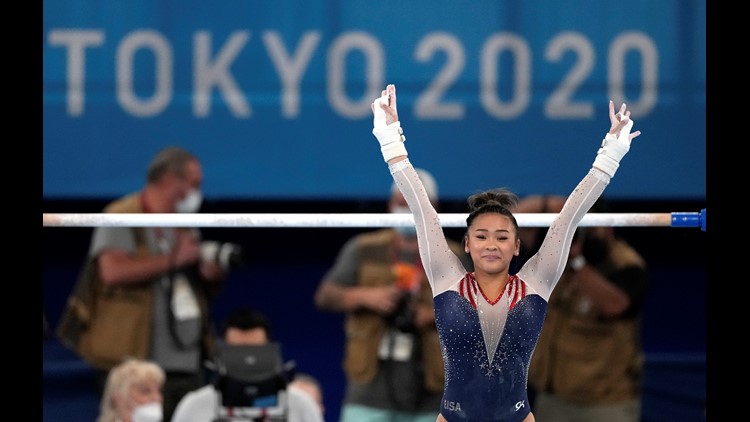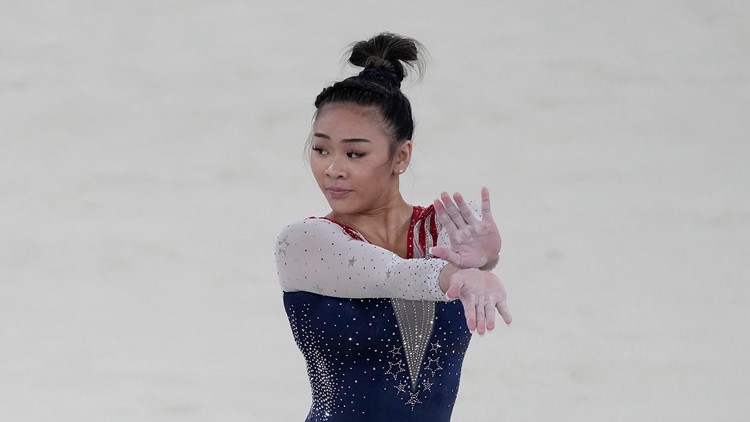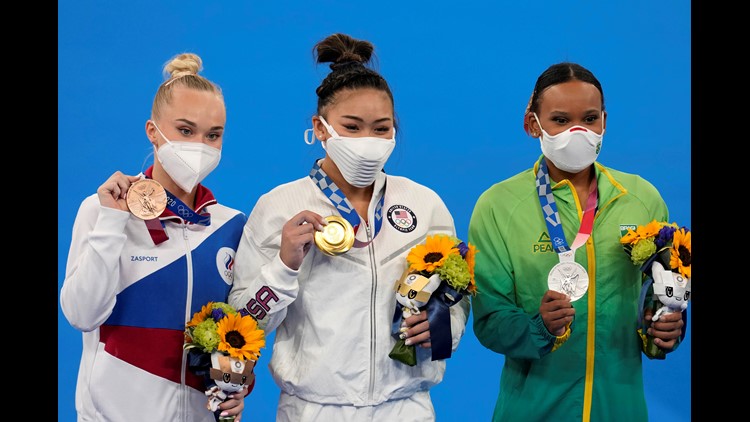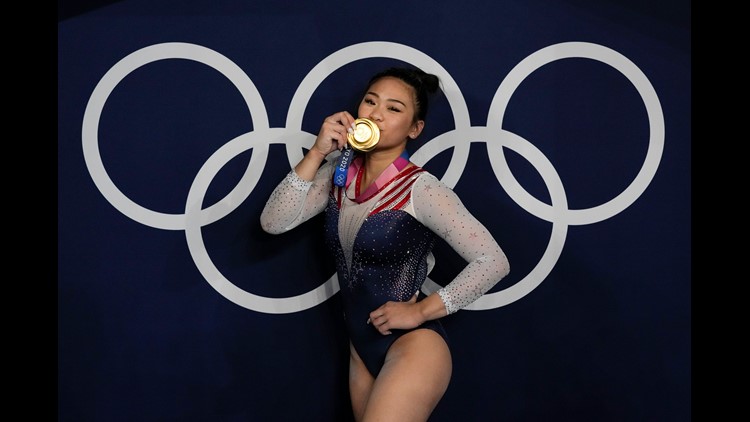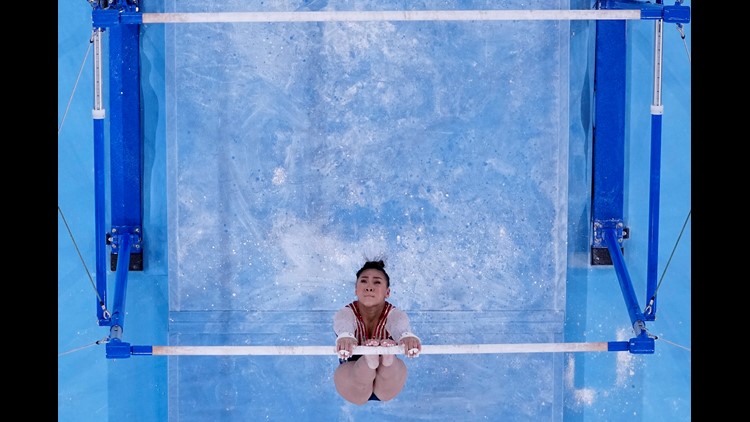ST PAUL, Minn. — On Thursday, July 29, 2021 Minnesota gymnast Sunisa Lee competed in the women's gymnastics all-around finals at the Tokyo Olympics.
KARE 11 anchor Gia Vang, a Hmong-American woman, joined Suni's family and friends at their early morning watch party in Oakdale. The following is Gia's account of what happened before, during and after the St. Paul 18-year-old won gold.
Around 7:20 a.m. there were a few more rotations left in the women’s gymnastics individual all-around. I decided to take the seat I had plopped my bag and jacket on after hours of doing live shots for KARE11 Sunrise. My seat was originally at the end of the row. "Easy access since I had to move around a lot," I thought.
Well, by this time my seat was in the middle of the room. You see, the staff at the Brothers Event Center in Oakdale put out chairs. They just didn’t think to put out 275 plus chairs. It was an unexpected, but welcome turn out to watch St. Paul’s Sunisa Lee compete for the all-around title at the Tokyo Olympics.
The competition lived up to the hype. At one point, I pulled out my calculator and Sunisa and the Brazilian gymnast Rebecca Andrade – amazing in her own right – were only separated by .101 points.
Then all of a sudden, there was just the floor exercise to go.
The room grew tense. I realized I couldn't sit any longer. I made my way to the open area of the event center to watch the routines begin. I saw Sunisa’s mom, Yeev Thoj, wiping away tears every so often, a slightly nervous smile on her face. She was clenching the hands of loved ones around her and clearly taking deep breaths. Houa John Lee, Sunisa’s dad, is sitting next to her. Thoj leaned her head into his shoulders.
Sunisa took the floor and applause filled the room. “Go Suni!” some yelled. Sunisa is consistent. She did three tumbling passes instead of four. She stayed in bounds. As her mom has said to me, she “showed out.” Sunisa scored a 13.700. Steady. But Andrade was still to come.
Andrade took the floor. The event center quieted to a hum. Everyone’s eyes were fixated on the projector screen. Someone screamed “Don’t breathe!” There was some chuckling, but it got quiet again. Andrade looked confident – but she stepped out of bounds with both feet at the end of her first tumbling pass. There was a collective gasp from the crowd as people held each other. I let out a gasp myself. Then, she stepped out again with one foot. People in the crowd put their hands over their mouths. Eyes were wide as she ended her routine.
Andrade's official score hadn't come down, but she needed a 13.802 score to win.
Then the announcer started to speak, "Thirteen point six..."
His voiced trailed off under an almost synchronized explosion of screams and cheers. Bodies jumped into the air, chairs were pushed out of place. The 18-year-old first-time Olympian and Hmong-American Sunisa Lee had clinched gold in the women’s gymnastics all-around. Everyone’s heart in that room felt as one in that moment, and that heart was collectively bursting.
Suni's parents were immediately stormed by a group of loved ones. “She did it!” someone yelled. Fists in the air. “Yes!” another screamed.
It was beautiful.
As a Hmong-American woman I can’t help but tear-up when I think about the heights Sunisa has reached.
As I spent time with her family this week, I’ve learned about not just Sunisa's story, but "their" story. Lee and Thoj both came to the United States as refugees. Lee told me he landed in Minnesota around Saint Patrick’s Day. In shorts. He laughs it off now, but realizes he had no clue what a Minnesota winter entailed.
I couldn’t help but think about my mom, who landed in Rhode Island. She told me she had no idea what an apple was. “I’ve never seen the fruit that was shaped or tasted like that in my life,” my mother told me. There were so many unknowns for both the Lee/Thoj family and my own parents in an unfamiliar place they were now to call home.
But this is one of the things about Hmong people. They have a sense of unwavering resilience, making the best of the places and situations thrown their way – even if it's very little.
The Lee/Thoj family told me they didn’t have the means for Sunisa to do gymnastics long-term when she was younger. They put her in an eight class trial at a local gym to see if she’d like it, but it was expensive, Lee said. “She was a hyper kid,” so they went for it.
Sunisa’s star shined in the gym from day one. She was a natural. But as Sunisa and her family began taking things more seriously, Lee and Thoj knew they couldn’t afford it. So Lee built Suni a home-made beam and used an old air mattress cover to cover it. Then the couple began doing annual fundraisers where family, friends, and sometimes strangers donated to help the family pay for Suni's ambitions with gymnastics.
"I would set it up, I would go to the community ask for support," Houa John Lee said. "Then we would sell T-shirts, make egg rolls, whatever we can just to have enough to help her fees, uniforms, or travel fees when we traveled with her and things like that," he said. “We made pho at home, like in our garage, and have friends and family will come and they just donate to eat pho with us," Yeev Thoj said. Yes, we certainly need to recognize the utter dedication and efforts of her parents.
PHOTOS: Sunisa Lee's gold medal win in the women's gymnastics all-around
We have variations of a saying in Hmong: "Hmoob yuav tsum hlub Hmoob." It translates to, "Hmong have to love Hmong."
Sunisa’s rise to the world stage was truly lifted by many in the Hmong-American community. That's why her story feels so familiar. It’s every Hmong person's story. It’s my story. It’s why we weep when we see her on this stage. That's why we show up by the hundreds with less than two day's notice for a watch party.
This is why the Hmong-owned venue offered up the space for free and people arrived with breakfast treats and “fawm kauv” in hand. You feel a responsibility to take care of each other when we’re down, and root for each other when we’re on our way to stand on the highest of podiums.
With a perspective like that and how we hold dear to “Hmoob yuav tsum hlub Hmoob,” that is how we raised an Olympian in just over 40 years in the United States. And in this new world that continues to emerge, we need new heroes like Sunisa who reflect what this country looks like.
Congratulations Sunisa.
WATCH FROM NBC OLYMPICS: During the all-around final, in need of a big routine to keep pace with Rebeca Andrade in the Olympic individual all-around final, Suni Lee did her thing on the uneven bars, earning a huge 15.300.

